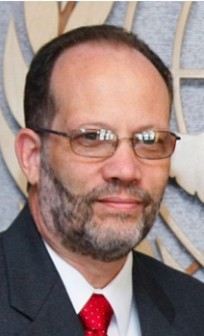CARICOM Secretary-General, Irwin LaRocque, said yesterday that the impatience of the region’s citizens to enjoy the benefits of integration should serve as an impetus to ensure the urgent resolution of outstanding issues that hinder Community nationals, including the private sector, from taking full advantage of the CARICOM Single Market and Economy (CSME). The CARICOM Secretary-General was delivering remarks at the 34th Meeting of the Council for Trade and Economic Development (COTED) in Georgetown.
These issues, he noted, affect not only daily lives and day-to-day operations but also the public perception of inertia and slothfulness engulfing the integration movement, LaRocque said, according to a copy of his address made available by the CARICOM Secretariat at Turkeyen.

“Let us move swiftly to consolidate and strengthen our Single Market and Economy as it is critical that we collectively engage the global market, particularly in these stringent times,” the Secretary-General is quoted as saying.
“Even as we continue to fight to ensure that the international community takes account of our special and vulnerable circumstances, we have to put our own house in order,” he warned.
The need for this becomes all the more apparent, he added, as they move ahead with the negotiations for the conclusion of a Trade and Development Agreement with Canada and having commenced the preparations for re-engaging the Dominican Republic on the implementation of the CARICOM-Dominican Republic Free Trade Agreement.
Further, the Trade and Investment Council (TIC) with the United States, which has been dormant for some time, will be meeting here in Georgetown tomorrow, he added, at a point when the region’s exports to the US under the Caribbean Basin Initiative (CBI) and its related Acts are being threatened.
This meeting of the TIC represents a timely re-engagement between CARICOM and the US, LaRocque declared.
He also told the ministers and delegates that the COTED was happening at a time when the entire Community is in a mode of reform and change as efforts are being made to make a more meaningful impact on the lives of the people of the Region.
“These changes and reforms are designed to bring about a more effective, efficient and dynamic Community and Secretariat in order to deliver on the promise of creating a Community for all,” the CARICOM Secretary-General said.
An issue that has occupied the time of the Council in recent years relates, in one way or another, to the operation of the Common External Tariff (CET), he noted.
He also pointed out that the Caribbean Court of Justice has made judgements and pronouncements on specific matters that impinge on the overall operation of the CET.
“We must recognise that we are operating in a rules-based environment, as enshrined in the various provisions of the Revised Treaty and as interpreted by the CCJ,” LaRocque advised.
And to some extent, he said, that is new territory for the manner in which the COTED conducts its affairs.
However, he added, the framers of the Treaty must have intended that this Council would be enabled to legitimately manage the regimes under its control in seeking to achieve the objectives of the Community.
“It is not beyond the capacity of this Council to find creative solutions to some of these problems, while keeping within the four corners of the Treaty,” the Secretary-General said.




